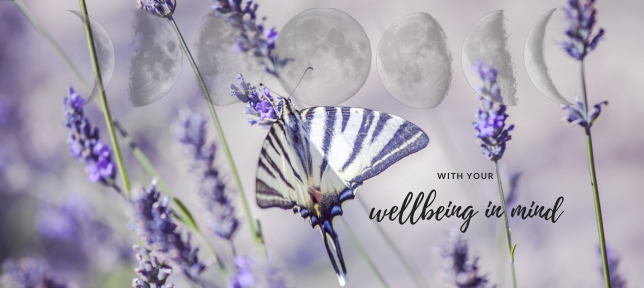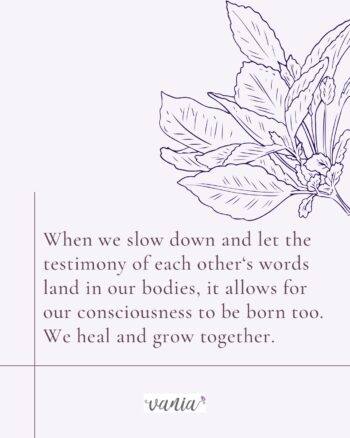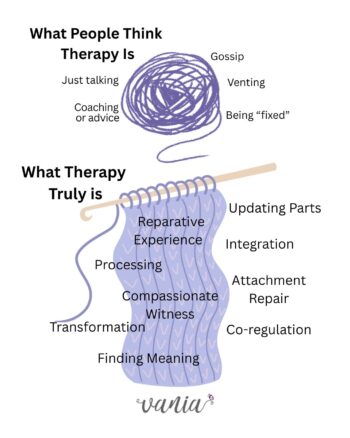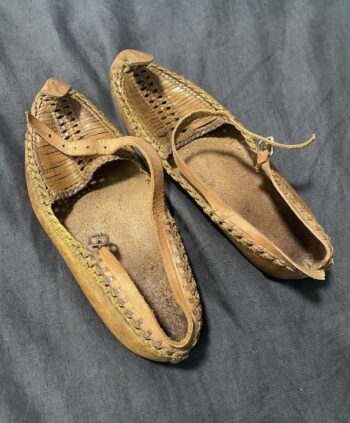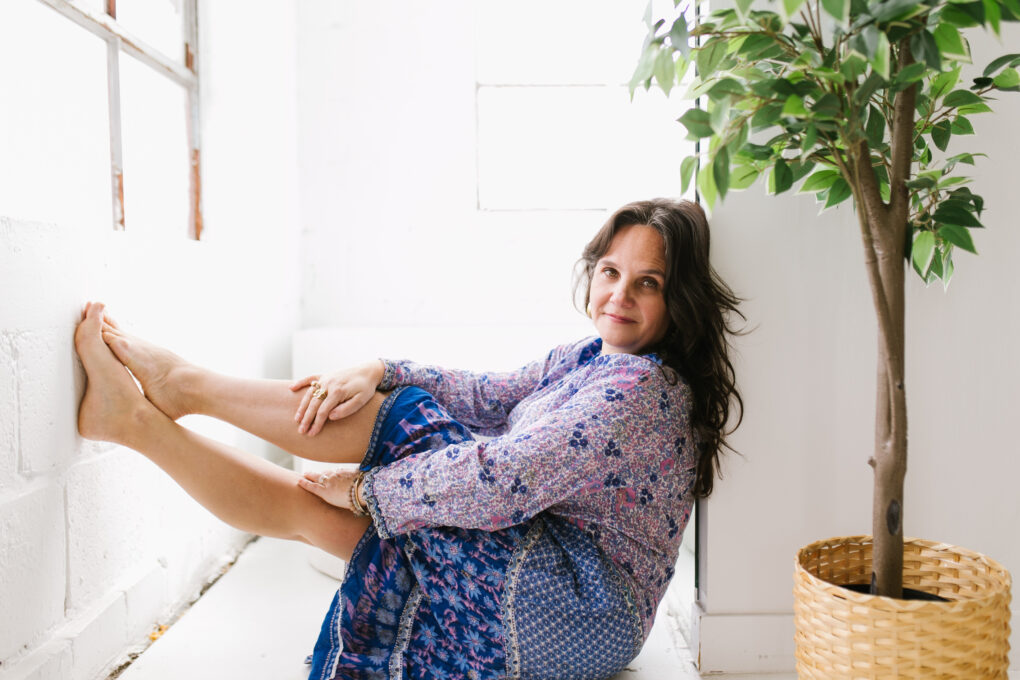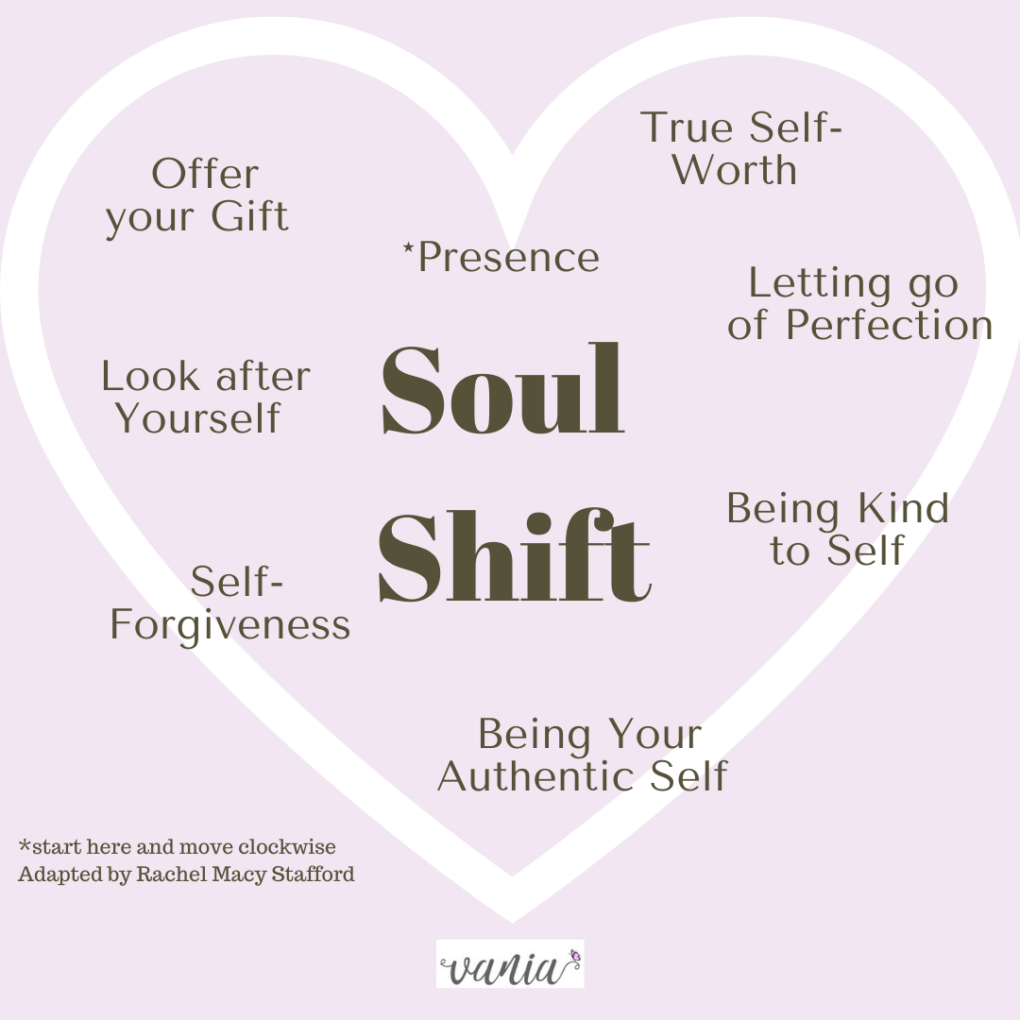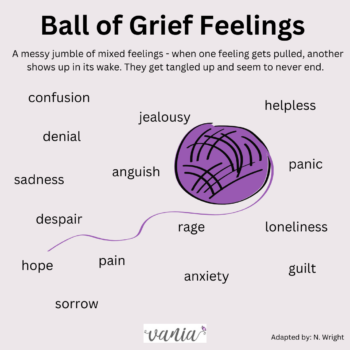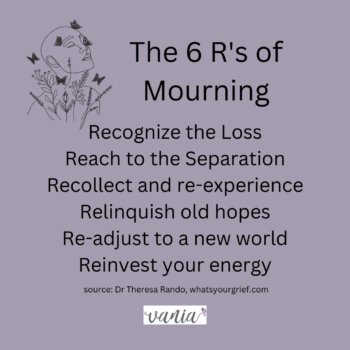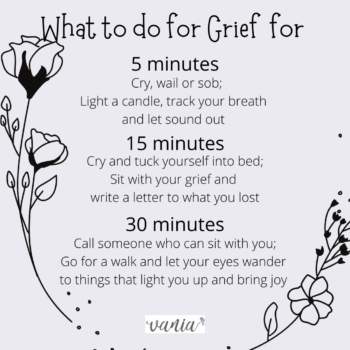We are a month into this new year, and there is so much to grieve already. The human rights of folks in various parts of the world, the right we have to democracy and our own voice, the humanity of it all actually meaning something.
With a new calendar year, we are offered a practice to honour this shift as a rite of passage. Rites of passage are pivotal moments that mark our life in stages and phases. They follow an arc of separation from who we were, to the liminal space of transitioning into a new identity, and then integration of this role into who we are overall. What these passages also include is grief that is hidden in the shadows. Grief for what is ending, even if we want it to, let alone what has been taken from us.
It is important, then, to start the rites of passage by taking time to be with the ending and accompanying grief so that we are not carrying this heaviness throughout our journey.
Whenever i am faced with this tension in my heart, i give myself the healing balm of nature. Not just to escape (though i am being called more and more to run to the woods), but to also glean the wisdom of nature. Mother Nature tells me that there is up and down, back and forth, death and rebirth. The snow that fell in record numbers is a testament to our climate crisis, and also the snowflakes are so beautiful. It is all about balancing this tension of opposites.
One of these tensions is the balance of new beginnings that come from endings. We need to honour what is ending, whether we welcome the end (like to winter) or not.
We don’t just grieve for what we had that’s now gone or what we wish we had and didn’t get. We also now have a moment to be able to grieve who wasn’t able to grieve in their lifetime. We grieve for them, not just about them.
Grief lives alongside the happy moments as it is the bridge to this happy experience coming to a natural end. That can be the last day of school at the school that has been in your family’s life for 13 years, the last time you take your kid for ice cream on the last day of school, the last time they held your hand.
Grief asks a lot of us. But it also gives. In time, it reveals the quiet wisdom of what mattered, what changed us, and what still lives within. You don’t have to rush your healing. Your heart knows how to find its way.
Letting go doesn’t mean loss necessity, it means accepting that growth and change are inevitable. That a rite of passage is the process of grief for what is ending all the way to the incorporation of what is new. We need to be glad for hte hand holding and cuddles for what they offered and created, adn that the love we offered is what will be repeated in our children as they pass the baton.
We can’t think our way through grief, we can only feel it. We feel it in our lungs, or in heartbreak. It feels like a messy ball of yarn that is messy, and full of knots. The only way to clean it up is to tend to it directly.
That’s where the love meets the grief.
Gates of Grief
In his book, The Wild Edge of Sorrow, Francis Weller shares this: “The only way out is through and the only way through is together.” It is not about the journey or the destination but the company you are with when you are journeying through grief. We are not meant do it alone.
1. All that we love we will lose (Francis Weller)
2. The places that did not receive love (Francis Weller)
3. The sorrows of the world (Francis Weller)
4. What we expected but did not receive (Francis Weller)
5. Ancestral grief (Francis Weller)
Optional extra Gates of Grief:
6. Trauma (Francis Weller’s optional gate)
7. The harm I have caused to myself and others (Sophy Banks)
8. Anticipatory grief – fear of what is to come (Sarah Pletts)
“We have entered a prolonged season of descent, taking us down into the unknown. In the imagery of myth and fairy tales, we have left the ordinary world and have entered the underworld, a sightless terrain that is shadowy and strange. I have come to call this time of descent The Long Dark. It may be decades or more likely a few generations before we see the farther shore of this crisis, if we make it. I say this not with a note of despair, or with an attitude of hopelessness, but, instead, recognizing and valuing the necessary work that takes place in the dark. It is the realm of soul—of whispers and dreams, mystery and imagination, death and ancestors. It is an essential territory, both inevitable and required, offering a form of soul gestation that may gradually give shape to our deeper lives, personally and communally. Certain things can happen only in this grotto of darkness. Think of the wild network of roots and microbes, mycelium, and minerals, making possible all that we see in the day world, or the extensive networks within our own bodies, bringing blood, nutrients, oxygen, and thought to our corporeal lives. All of it happening in the darkness.
The requirements for this time are not the familiar ones of achievement and growth, clarity and power. No, this season is asking for a new rhythm, one that is more attuned to humility and listening, stillness and rest. I hope each of you finds little pockets of refuge that support your intimacy with soul.” — Francis Weller
How did his words land for you? Do they resonate deep in your bones like they offer me?
Grief work is subversive cultural shadow work because it is committed to acknowledging death in an individual and collective way. We spend so much time bypassing it in our spiritually starving overculture, and focus on love and light without also realizing integrating our shadow is what completes us. Western society has become grief illiterate, as we become more individualistic and severed from our emotions and lineages. We all need to apprentice with Grief and find meaning in the loss – not of the loss of our beloved, but rather for what our life is now that they are gone. This is a task of mourning and we are not meant to do it alone, we in fact need community to witness it and hold us.
The Four Tasks of Mourning by William Worden
Task 1: Accept the reality of the loss.
Your mind can know long before your body accepts it.
Task 2: Feel the pain of the grief.
Your job isn’t to be strong. It’s to stay with yourself through what hurts.
Task 3: Adjust to a world without them.
Emotionally, physically, spiritually. Everything shifts.
Task 4: Find an enduring connection with them while building a life around the loss. It is not about moving on, but rather moving with.
When we turn ourselves off from our sorrow, we become stuck and loose our flow state. This represses all our feelings as a consequence, including our joy. We need to be tender with ourselves. There will be big waves of grief that feel like they just burst from us, or quiet waves that are an ever-present current. Knowing what you need in a given moment is key, be it a distraction to get through or a soothing resource.
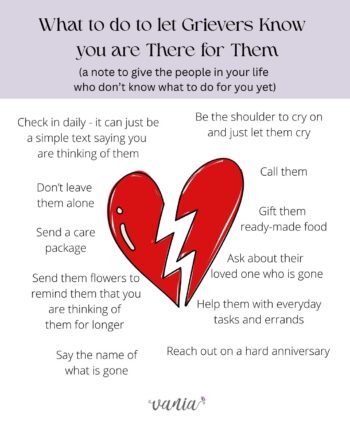
One thing that may help is placing your feet on the ground and saying “I am the shore, and my feelings are the waves that come and go.” Feel your feet as anchors. Let your feeling come and go, and let it be felt. We can’t distract or bypass them forever, we have to move through them.
And while we can resource ourselves, we are not meant to weather this storm alone. Well-intentioned family and friends alike struggle to be the calm shore for grievers. It is partly due to their lack of personal experience, and also how grief and loss is tethered to the shadows of our humanity. Regardless, endings are inevitable, our sorrow doesn’t have to be.
If you’re moving through loss, I hope that your community offers a small anchor, not to fix anything, but to help you feel the strength that’s already here.
And if they aren’t showing up for you, yet, send them is message with these simple yet profound suggestions.

